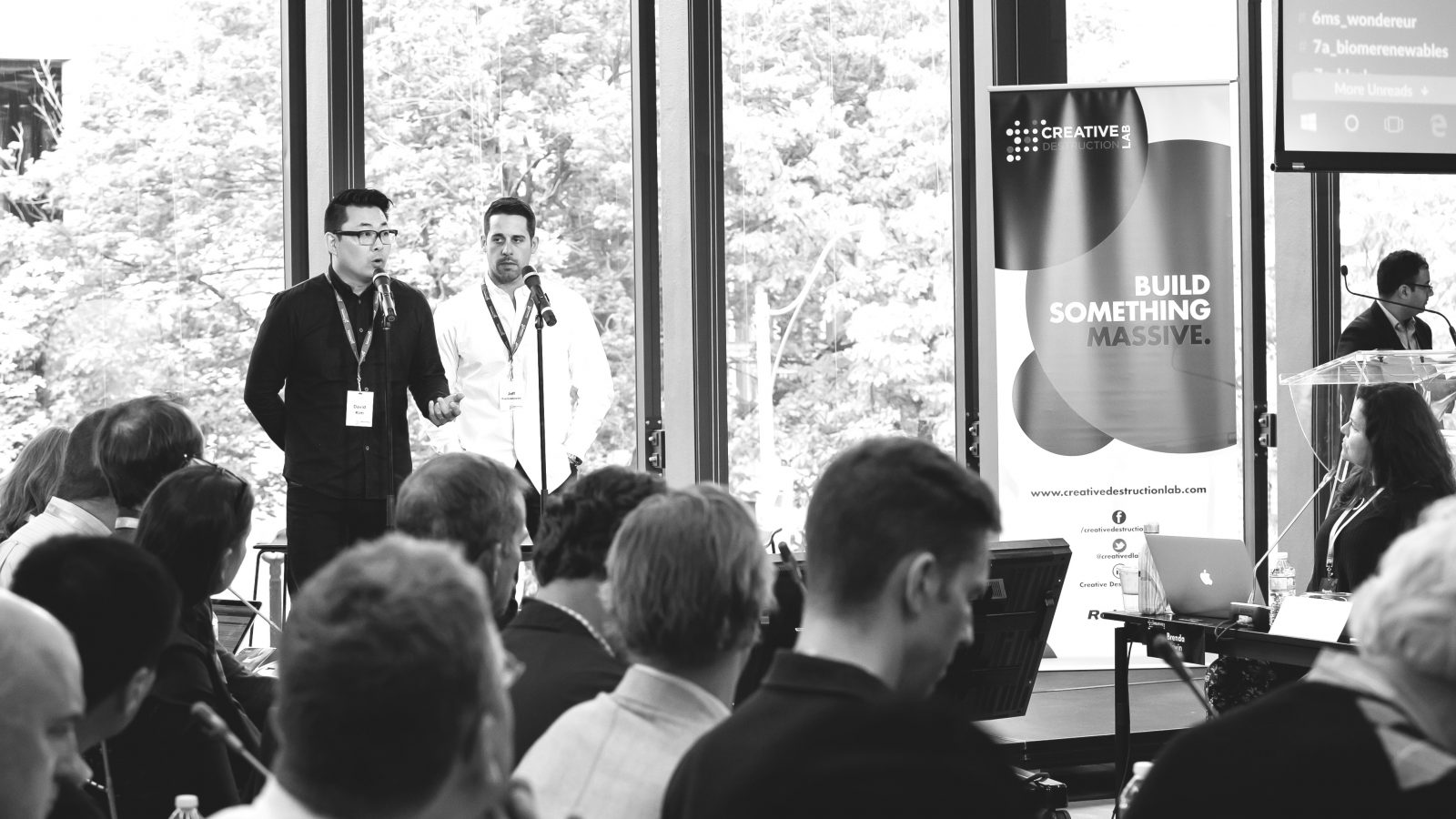Over the course of nine months, over 180 business students across five business schools in Canada participated in the Creative Destruction Lab’s (CDL) program developing science-based projects into high-growth companies. Ventures accepted into the program work on cutting-edge products in the areas of artificial intelligence, quantum computing, clean tech and health.
Students part of the CDL course at their business school not only learn from the experienced entrepreneurs and investors who guide companies on setting focused goals, they also provide hands-on support to achieve those goals through technical expertise, product development and more.
Here are four students on how the CDL not only transformed their MBA experience, but also landed them jobs:
Eric Pham-Hung, Imminenth
Eric started the University of Toronto’s Rotman MBA program as a part-time student while working full-time — by the time he finished the CDL course, he had quit his job to devote himself to the CDL company he was working with.
He first joined the program as a way to apply his background in healthcare and in his words, to indulge his “inner nerd.” Imminenth allowed him to do just that, especially because the company had deep expertise in every area except healthcare — the area they wanted to develop their product for.
“When I came in, I took my time to understand what their technology could do,” says Eric. He homed in on a specific pain point companies face: learning from patient records without compromising their privacy. Eric’s contributions were so key to how the company developed, he was named a co-founder.
While the CDL provided Eric with a very practical knowledge set to apply in his work, it’s the ethos that really stuck with him — the push to hustle and build something. “CDL created an opportunity for me to take my first step.”
Cheryl McConachie, Untether AI
Cheryl started her MBA at Rotman with a clear goal: to start consulting after she graduated. But after her first year, she realized what really excited her was innovation and entrepreneurship — and that’s what drew her to the CDL.
“Once I got involved with the CDL, I realized that was much more aligned with the type of work I want to do,” says Cheryl.
Working with Untether AI, a CDL venture she’s now joined as Director of Business Development, gave her the hands-on experience she needed to refocus her long-term goals. “It’s easy when you’re doing an MBA to get caught up with the case study, the course work and to look at everything through a theoretical lens,” says Cheryl. “Having the opportunity to tackle real-world problems brought my MBA [experience] to the next level.”
George Mallin, Optina Diagnostics
George joined the CDL program as a student at HEC Montréal because he wanted firsthand experience at a startup. “I wanted to learn more about entrepreneurship, investment and the challenges startups face,” he says.
George’s training is in biotech, and while he worked with a medical device company throughout the program, True Positive MD, he ended up accepting a job offer from another CDL venture focusing on biotech by the end of the program, Optina Diagnostics.
He got an inside look at what Optina did and what they needed to succeed at one of the CDL sessions. The company, which has developed a simple eye scan that detects Alzheimer’s disease, needed a certification that George had already helped another company acquire. Just by reaching out and helping them through it, George was able to build a relationship that eventually landed him the role of Product Manager.
“The CDL program was exactly what I wanted to get out of an MBA,” says George.
Lucas Siow, ProteinQure
A data scientist by training, Lucas came to the Rotman School of Management because of the CDL program — and it was exactly the enriching experience he’d hoped it would be. “It’s the class that I learned the most in, by far,” says Lucas.
Working with the CDL venture ProteinQure, which uses hybrid quantum-classical algorithms to design protein-based drugs, allowed Lucas to explore his interest in machine learning and its application to business. And through the program, he was able to meaningfully contribute to the day-to-day operations of the company. “I was involved in a lot of the early decisions — fundraising, meeting potential customers, organizational strategy and basic things, like hiring our accountant,” says Lucas.
Getting to know the team at ProteinQure was a big part of why he turned down another job offer to become their Head of Business Operations. But what really sealed his decision was the chance to be part of something groundbreaking: “ProteinQure has the opportunity to have a massive impact in the world — taking a moonshot technology and trying to apply it to cure diseases.”
****
The CDL is a seed-stage program for massively scalable, science-based companies. Its nine-month program pairs founders with experienced entrepreneurs and investors to set focused, measurable objectives with the goal of maximizing equity-value creation. Since its inception in 2012, companies that have participated in the CDL programs have created $2.5 billion (CDN) in equity value. CDL Alumni include Thalmic Labs (Waterloo), Atomwise (San Francisco), Deep Genomics (Toronto), Nymi (Toronto), Automat (Montreal), Kyndi (Palo Alto), and Heuritech (Paris).





